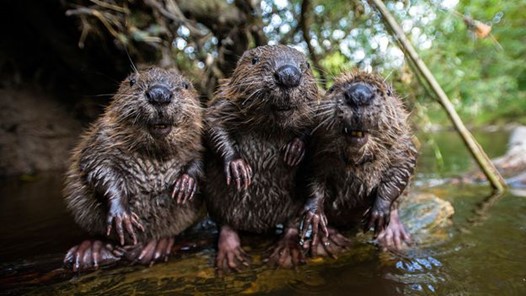We’re all sore in the ears from hearing headlines on the pandemic and its aftermath in all spheres of life. In 2020, millions got affected and died. Humankind invented new ways to cope with the mental breakdown due to the lockdown. The SOPs are now following worldwide; a couple of countries started programs for vaccinating their citizens.
In 2020, besides virology, microbiology, and healthcare, the life sciences breakthroughs deserve as much of an applauding recognition. The wildlife on planet earth experienced equally harrowing events during the year. While there are depressing news and discoveries, Nature does give us good news once in a while.
Let’s look at some of the topmost stories on the breakthrough research made in wildlife during 2020.
Wildlife has benefited from our pandemic-induced lifestyle changes
Millions of species populate the earth, including plants and animals; unfortunately, it is the most dominant humans and creates havoc on land, oceans, and the atmosphere. From pollution to hunting and deforestation, we’ve pretty much knocked over the ecosystem’s delicate balance. With the onset of the pandemic, we were forced to practice social distancing and stay locked up in our houses. Traffic and workplace pollution dramatically declined, and this gave wildlife a chance to thrive and flourish again.
The downward spike in pollution saw a boost in the environment, created a natural rehabilitation of many wild animals, fish, and birds.
Another major milestone during the pandemic was the ban on using wildlife as food by the global wildlife trade in areas of China like Wuhan, where the virus has originally been traced. Zoo animals were freed as a mutual feeling of being trapped inside developed in humans during the lockdown. Hunting and killing of wild mountain animals were also banned. In short, the pandemic proved to be a blessing for the wildlife and their habitats.
The discovery of new species
Many species that had been previously thought to be extinct have been rediscovered. Some examples are as follow:






New snake discovered named after Harry Potter character
This new species deserves a separate headline because it has been named after a character from the most popular fiction series Harry Potter by J.K.Rowling. That’s right; we’re talking about the Salazar’s pit viper, a green beauty found in Arunkal Pradesh, India. It’s a venomous snake and was stumbled upon in April.

Around 156 plant and fungal species named as new in 2020
Naturally growing plants and microorganisms also add up to a rudimentary part of the wildlife ecosystem. Here is a glimpse of some of the new species discovered:





World Wildlife Day 2020
Celebrated by the UN on 3rd March, the theme of 2020’s year’s event was sustaining all life on Earth. Here are glimpses of the headlines:
- Wild beavers, which were reintroduced in the UK, helped improve the local environment as they dig holes around the waterside and reduce local flooding.
- Whales are helping in the fight against climate change. They capture carbon dioxide from the environment. One whale captures CO2 as much as a thousand trees in its lifetime.
- Pest control is done by ducks rather than pesticides, especially in rice paddles.
- Dogs are sniffing out disease in citrus crops, which is a swift method due to their over-sensitive noses.
Let’s hope that the coming year proves to be a fruitful one in rescuing wildlife from humanity’s despairs and discovering more species that have been yet to be researched upon.
Also, read: Nasa’s contribution to Wildlife preservation

Aniqa Mazhar is a graduate of QAU in Biochemistry. She has taught sciences to O levels and is currently planning for her MS in Food Technology. Aniqa’s hobbies are reading, watching movies, writing, calligraphy, long walks, and nature photography.

